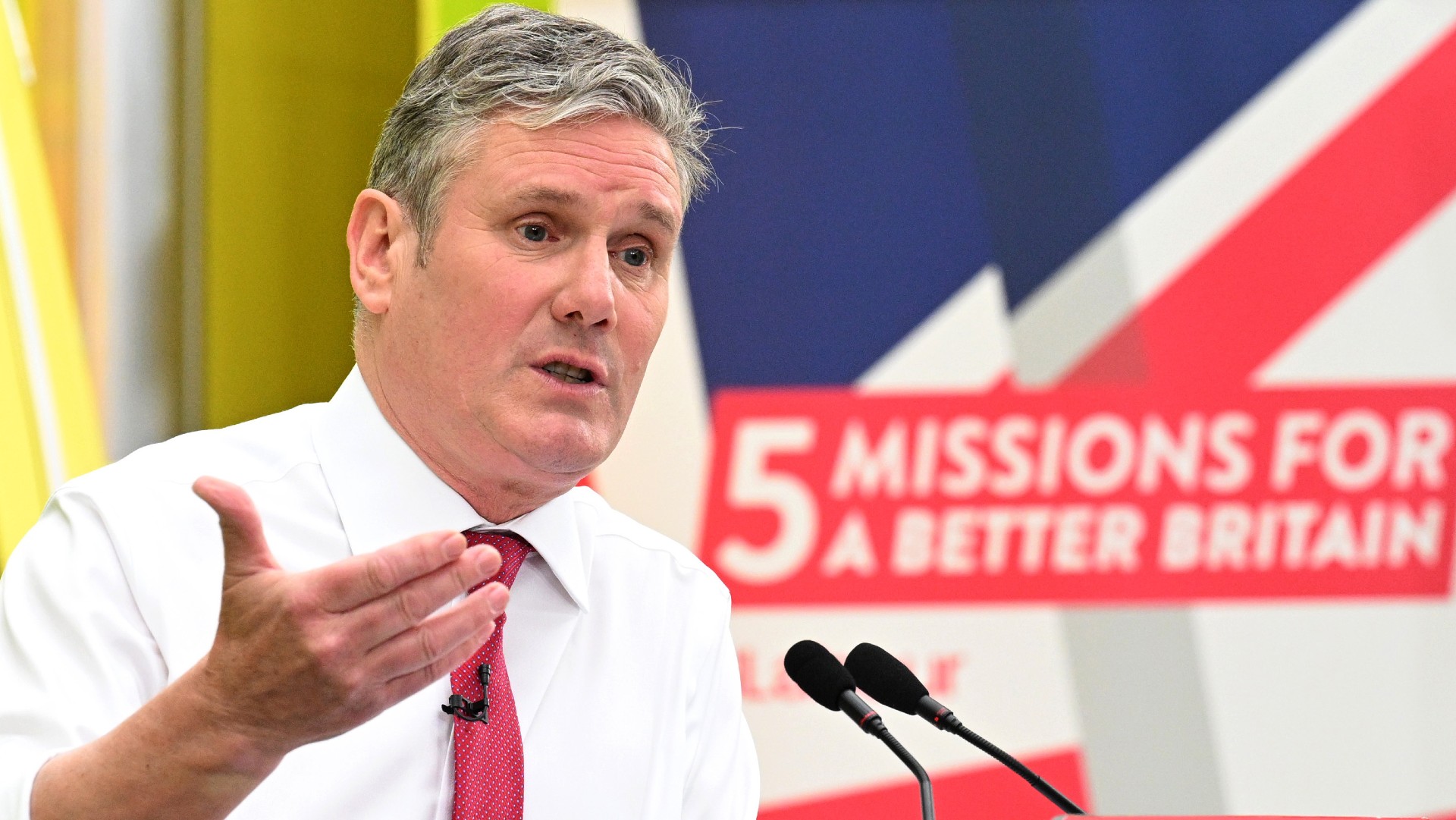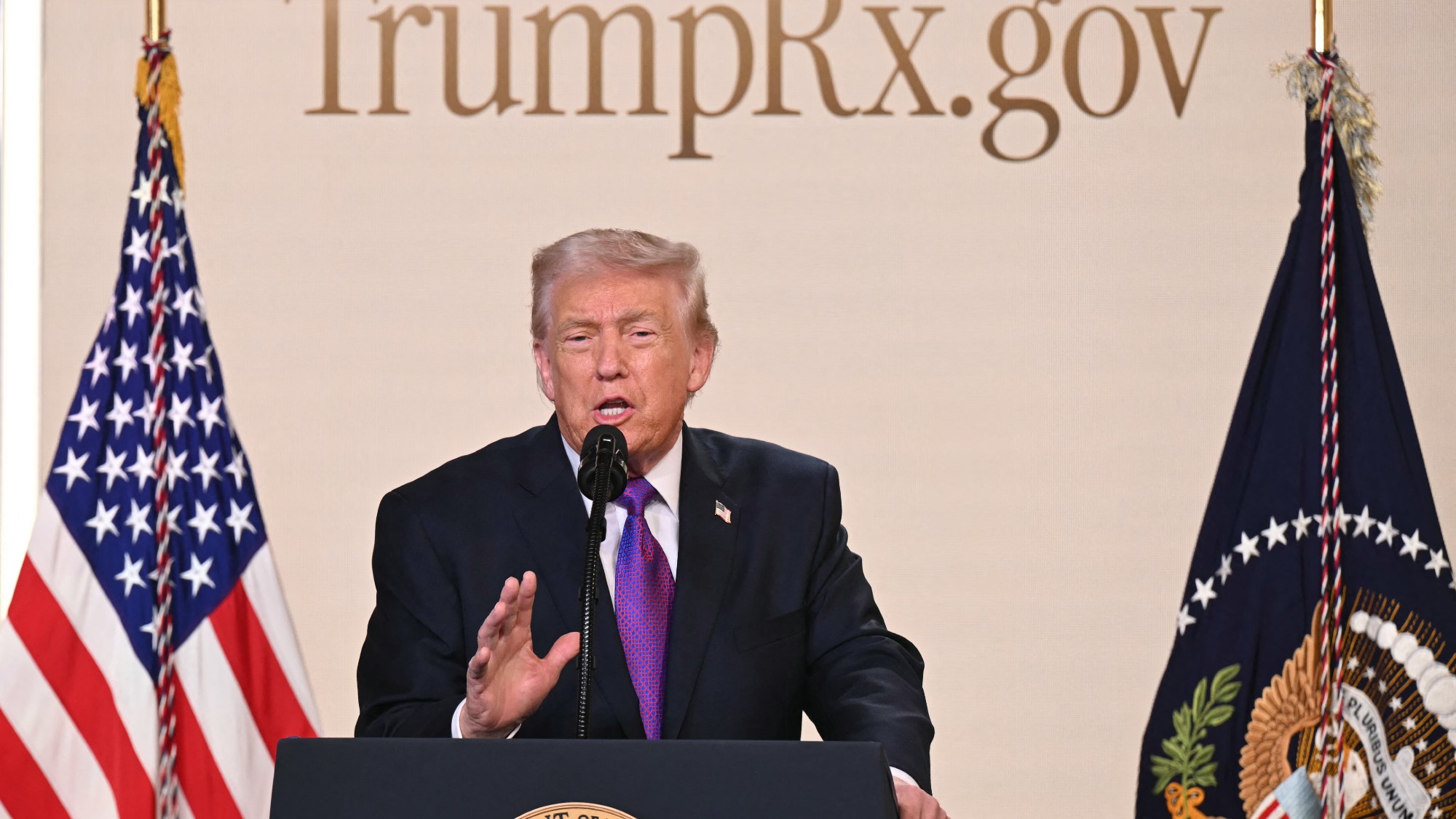Does Labour now have the upper hand on immigration?
Record net migration levels give Keir Starmer the opportunity to take the lead on the controversial issue

A free daily email with the biggest news stories of the day – and the best features from TheWeek.com
You are now subscribed
Your newsletter sign-up was successful
Net migration to the UK reached a record high last year, opening the Conservative Party up to criticism that it has broken its 2019 manifesto pledge to “take back control” of borders and reduce numbers of migrants.
The highly anticipated data released by the Office for National Statistics today showed that net migration reached 606,000 last year, up from 504,000 in the year to June 2022.
This means immigration to the UK is at more than double the level it was in 2019, and nearly treble pre-Brexit levels. “Brexit was meant to resolve the issue,” said Politico. “Yet more than three years after Britain left the EU, the numbers are only going higher.”
The Week
Escape your echo chamber. Get the facts behind the news, plus analysis from multiple perspectives.

Sign up for The Week's Free Newsletters
From our morning news briefing to a weekly Good News Newsletter, get the best of The Week delivered directly to your inbox.
From our morning news briefing to a weekly Good News Newsletter, get the best of The Week delivered directly to your inbox.
Yesterday, Keir Starmer accused Rishi Sunak of having “lost control of immigration” at Prime Minister’s Questions. The Labour leader said he would scrap the current rule that allows employers in sectors suffering from work shortages to hire foreign workers for as little as 80% of the going industry rate.
“I think Labour have the upper hand on this,” Nigel Farage said in The Telegraph’s “Planet Normal” podcast yesterday. The Labour leader’s “feigned sincerity” at reducing net migration “could just be more believable” at the next general election than the Conservatives, the former UKIP leader said.
What did the papers say?
The ONS data revealed that 1.2 million people moved to the UK in 2022 and 557,000 emigrated, which means “immigration added a city roughly the size of Glasgow to the UK’s population last year”, said The Times.
Although figures are lower than the 700,000 to 1 million the Centre for Policy Studies and Home Office modelling had forecast, they are “expected to pile further pressure on Sunak”, the paper said.
A free daily email with the biggest news stories of the day – and the best features from TheWeek.com
Labour’s pledge has “stolen a march on the Government”, said The Telegraph. It “mirrors a more dramatic proposal” by Home Secretary Suella Braverman this year, to raise the salary thresholds for foreign skilled workers, which is “understood to have been blocked by No 10 and the Treasury amid fears it could undermine economic growth”.
“It is unfair and is a built-in incentive for employers to recruit from overseas in shortage occupations,” wrote Stephen Kinnock, the party’s shadow minister for immigration, in an article for the same paper, “rather than addressing the causes of the shortages in the first place.”
Every Conservative prime minister from David Cameron onwards has made their own “failed pledge” to cut net migration to below 100,000 a year, said Politico.
Rising immigration feeds into a sense of “betrayal” among Brexiteer voters, Rachel Wolf, a co-author of the 2019 Conservative manifesto, told Politico. “A huge part” of what people voted for in the 2016 referendum was about “taking back control of immigration”.
“I can see an unexpected political configuration taking shape,” said David Goodhart in The New Statesman, which could “swing the next election decisively in Keir Starmer’s direction: Could Labour become the party of immigration reduction?”
Most voters believe that net migration is “alarmingly high”, the former editor of Prospect magazine said, and should be reduced.
“Yet few people strongly oppose any of the elements that make up the visa-controlled inflow: the humanitarian route for Ukrainians and Hong Kongers, the post-Covid bounce in student numbers, and the health and social care workers who account for half of the work visas.”
Some of this will inevitably decrease in the coming months, which if Labour wins would allow the party to “claim some of the credit for the fall in numbers (however disingenuously)”.
“What is the real difference between the two main parties on immigration?” asked Isabel Hardman, assistant editor of The Spectator. “Not much,” she said. “Both parties are struggling to convince voters that they have the will and ability to control migration.”
What next?
On Tuesday, the government announced a crackdown on international students, which would bar them from bringing families to the UK with them or switching to work visas before finishing their studies. It is the “biggest ever single measure” to tackle legal migration, Sunak told the House of Commons.
But the Home Office figures, which show there was a record high number of work and study visas in the first three months of this year, “suggest that net migration has not yet peaked”, said The Times.
Other Home Office data suggests “there will still be 1.1 million visas being granted by the time of the election in 2024”, said The Telegraph.
Robert Jenrick, the immigration minister, told MPs on Wednesday that there may be “more that needs to be done” to reduce net migration before the next election.
“Broader demographic shifts are also starting to change the immigration conversation,” said Politico. “The types of voters who tend to view immigration more positively” – university graduates, migrants and younger people – “are increasing as a share of the population.”
So the Labour Party should avoid “alienating its liberal base too much”, said Goodhart in The New Statesman.
Harriet Marsden is a senior staff writer and podcast panellist for The Week, covering world news and writing the weekly Global Digest newsletter. Before joining the site in 2023, she was a freelance journalist for seven years, working for The Guardian, The Times and The Independent among others, and regularly appearing on radio shows. In 2021, she was awarded the “journalist-at-large” fellowship by the Local Trust charity, and spent a year travelling independently to some of England’s most deprived areas to write about community activism. She has a master’s in international journalism from City University, and has also worked in Bolivia, Colombia and Spain.
-
 Democrats seek calm and counterprogramming ahead of SOTU
Democrats seek calm and counterprogramming ahead of SOTUIN THE SPOTLIGHT How does the party out of power plan to mark the president’s first State of the Union speech of his second term? It’s still figuring that out.
-
 Climate change is creating more dangerous avalanches
Climate change is creating more dangerous avalanchesThe Explainer Several major ones have recently occurred
-
 What’s TrumpRx and who is it for?
What’s TrumpRx and who is it for?The Explainer The new drug-pricing site is designed to help uninsured Americans
-
 Can Keir Starmer save the Chagos deal?
Can Keir Starmer save the Chagos deal?Today's Big Question Opponents confident they can scupper controversial agreement as PM faces a race against time to get it over the line
-
 How are Democrats turning DOJ lemons into partisan lemonade?
How are Democrats turning DOJ lemons into partisan lemonade?TODAY’S BIG QUESTION As the Trump administration continues to try — and fail — at indicting its political enemies, Democratic lawmakers have begun seizing the moment for themselves
-
 ICE eyes new targets post-Minnesota retreat
ICE eyes new targets post-Minnesota retreatIn the Spotlight Several cities are reportedly on ICE’s list for immigration crackdowns
-
 How did ‘wine moms’ become the face of anti-ICE protests?
How did ‘wine moms’ become the face of anti-ICE protests?Today’s Big Question Women lead the resistance to Trump’s deportations
-
 The UK expands its Hong Kong visa scheme
The UK expands its Hong Kong visa schemeThe Explainer Around 26,000 additional arrivals expected in the UK as government widens eligibility in response to crackdown on rights in former colony
-
 How are Democrats trying to reform ICE?
How are Democrats trying to reform ICE?Today’s Big Question Democratic leadership has put forth several demands for the agency
-
 Minnesota’s legal system buckles under Trump’s ICE surge
Minnesota’s legal system buckles under Trump’s ICE surgeIN THE SPOTLIGHT Mass arrests and chaotic administration have pushed Twin Cities courts to the brink as lawyers and judges alike struggle to keep pace with ICE’s activity
-
 700 ICE agents exit Twin Cities amid legal chaos
700 ICE agents exit Twin Cities amid legal chaosSpeed Read More than 2,000 agents remain in the region